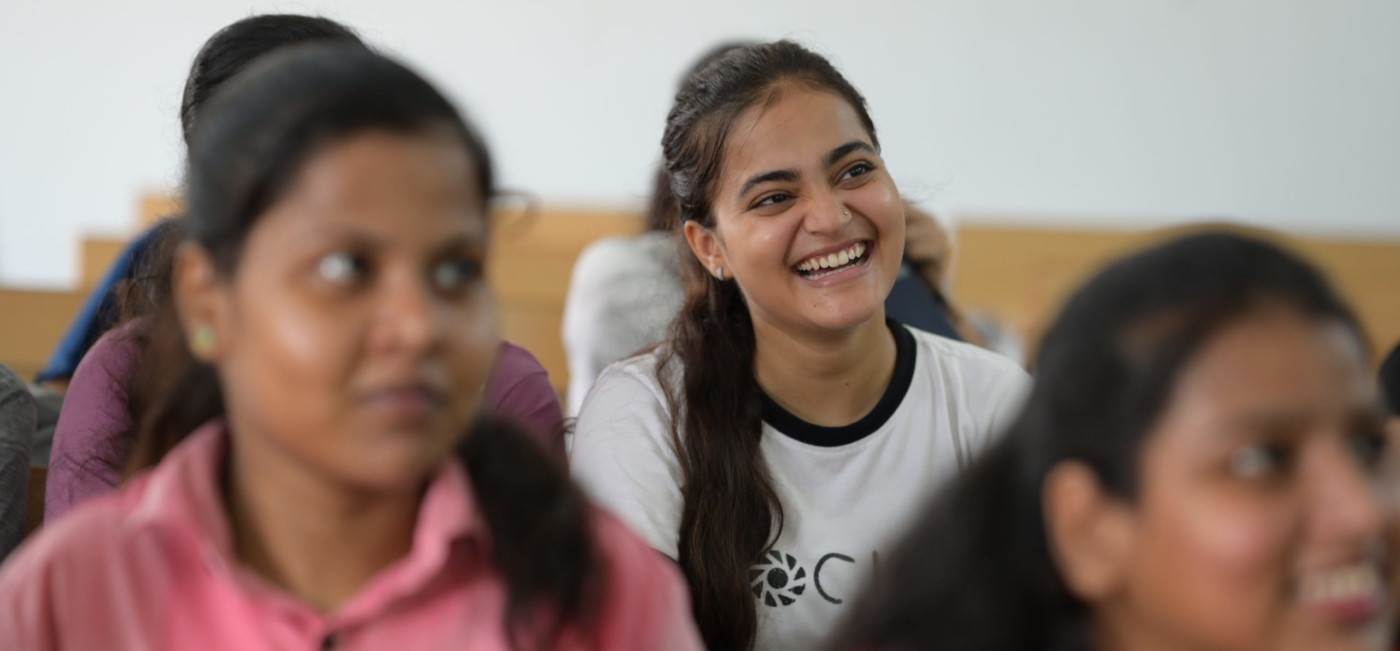
Reaching Economic Independence
In much of the world, as poverty rates decline and GDP per capita grows, economists and governments are shifting their focus from poverty alleviation to economic inclusion. The idea is to help people participate more meaningfully – with access to healthcare, wellbeing, and financial security that prevents them from falling back into poverty.
Economic inclusion is especially significant in young India, where, despite high economic growth, 78% of India’s working population – 27% of which is youth – earns less than ₹15,000 ($180) monthly. That’s an amount barely enough to cover basic expenses.
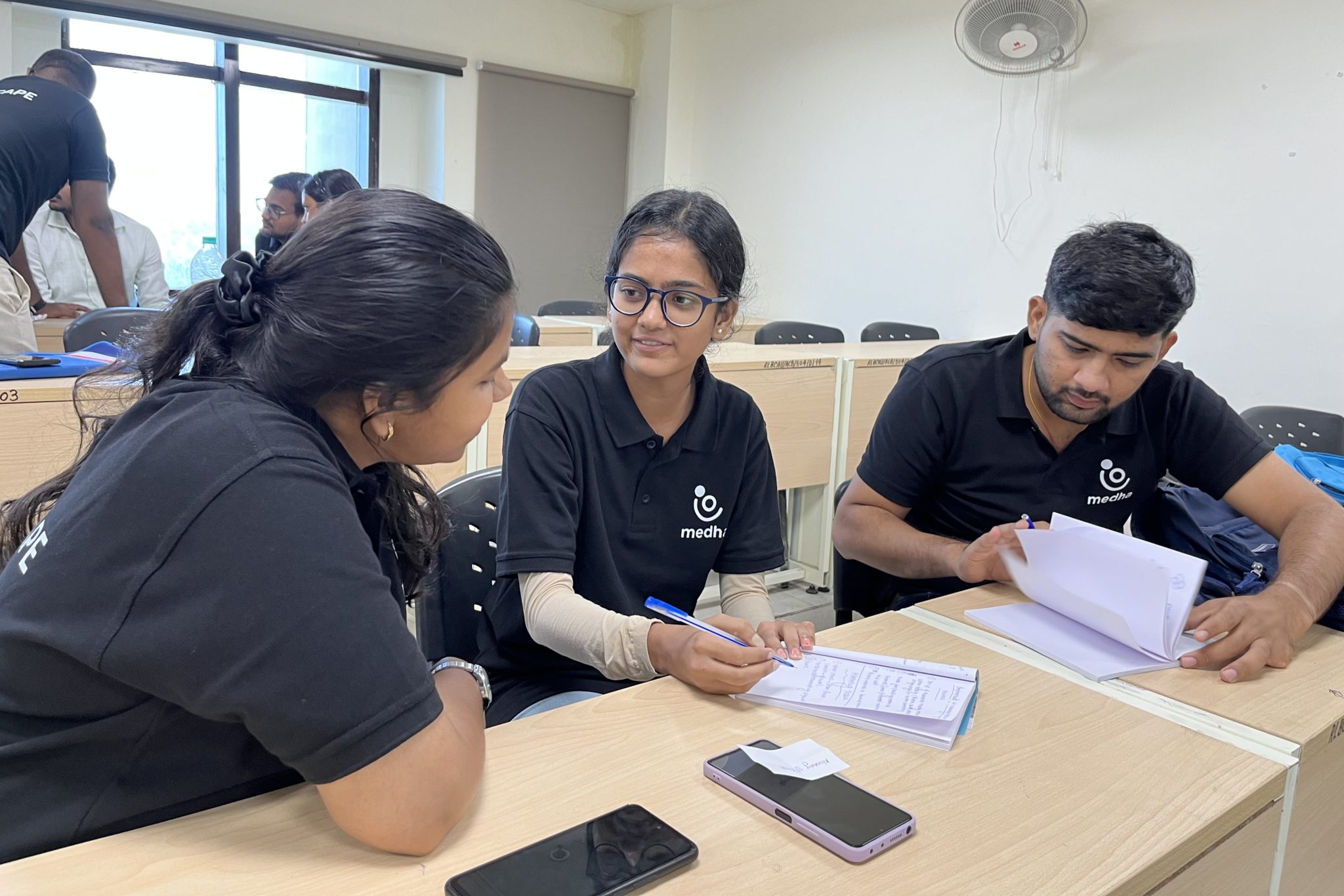
But what economists understand as economic inclusion, youth call economic independence. Within the Medha alumni community, they speak to the idea of feeling economically included as having the freedom to participate with dignity:
To never have to check a restaurant menu for prices. To fulfil parents’ unspoken wishes. To make unique career choices and leap to bigger dreams without fear of falling back.
In this context, Gourav, Aman, and Soumya share their ongoing journey to economic independence. While the path is rarely straightforward, three distinct stages emerge that lead to a deeper understanding of feeling economically included.
Survival – standing on your feet
The first job is rarely the dream job. But it allows youth to take care of the basics, not rely on their families, and own their decisions.
When Gourav started working after a vocational degree in mechanical engineering, his salary was under ₹20,000 ($240) monthly. Rent, food, and fees for a higher technical degree, consumed nearly everything.
However, as a first-generation learner, Gourav knew he couldn’t afford to risk his future by waiting for the perfect opportunity. “I’m the first in my family to pursue technical education. I was thinking about becoming independent; it didn’t feel right taking money from home. I wanted to learn extra skills with my own money,” he explains.
“It didn’t feel right taking money from home.“
– Gourav, Medha alumnus
Aman faced similar constraints when he accepted his first job at ₹15,000 ($180) monthly after a degree in civil engineering. Relocating to expensive Surat (Gujarat) left him questioning everything, “I was in a lot of self-doubt. What am I doing here? Should I leave and prepare for exams instead?”
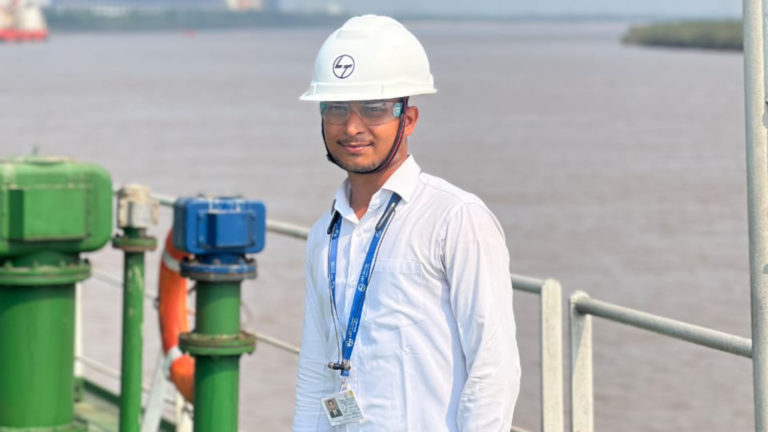
Soumya, who was also a Master’s student, chose differently. She negotiated a year’s time to break into data science despite family expectations to pursue government services. She shares, “There’s this hype that government jobs pay a lot, but that’s not how it actually is.”
At this stage, independence feels fragile and the risk of slipping back into dependence looms constantly. Yet, something remarkable happens: youth continue to look ahead.
Aspiration – pushing beyond the basics
This middle ground holds uncertainty, but it’s also where persistence and support create new possibilities.
Gourav methodically invests his earnings in skills and education. Every rupee is earmarked: rent, essentials, a laptop, and course fees. However, a modest ₹5,000 ($60) monthly increment, due soon this year, will unlock his next phase. He adds, “It will make a difference in savings. Taking extra classes to build technical skills will be possible.”
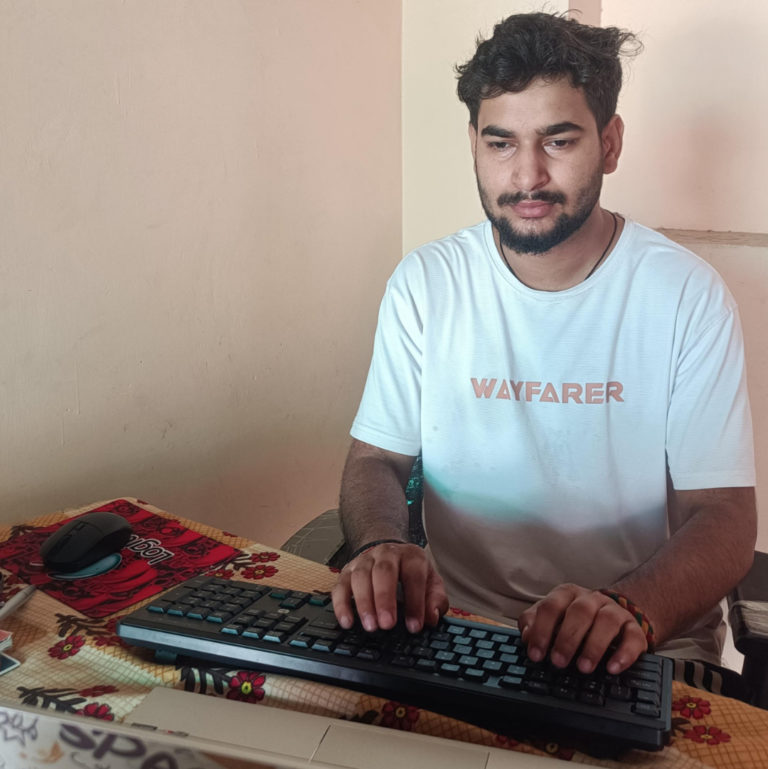
Aman’s persistence at work also paid off – relocating to Panipat (Haryana) and logging 12-hour days, his salary jumped threefold. “I didn’t know I would get such good growth,” he shares. While he supports his family financially, he continues preparing late into the night for defense exams. It is his childhood dream to join the Indian Army.
“I didn’t know I would get such good growth.”
– Aman, Medha alumnus
Soumya, on the other hand, competed with candidates from India’s top engineering schools to get a data science job. It felt intimidating, “When you come from a non-tech background, there’s always a fear – that you might not get what you’re aiming for.”
But with strategic guidance from her brother, she landed her first offer at ₹45,000 ($540) monthly – far exceeding her expectations of ₹20,000 ($240) monthly – and hasn’t looked back since. Reflecting on the experience, she says, “I realized my potential.”
Inclusion – The Dignity of Choice
For young people, economic independence isn’t just about wealth – it’s about the dignity of choice.
Gourav is proud to build a foundation for bigger bets without burdening his family. “Financial independence means gaining confidence – that whatever you want to do, even taking risks, you can do it yourself. I want to earn enough to eventually start a small business,” he shares.
Aman explains it as the moment you no longer need to check a restaurant menu for prices. He can now treat himself to a cinema hall instead of a public park, help a friend in financial trouble “without a second thought”, and afford the latest smartphone.
Soumya, now a senior data scientist, notes how financial ease is not just about the money: “As a youngster, you also want to explore, travel or meet friends occasionally.” It’s about creating a sense of belonging and community.
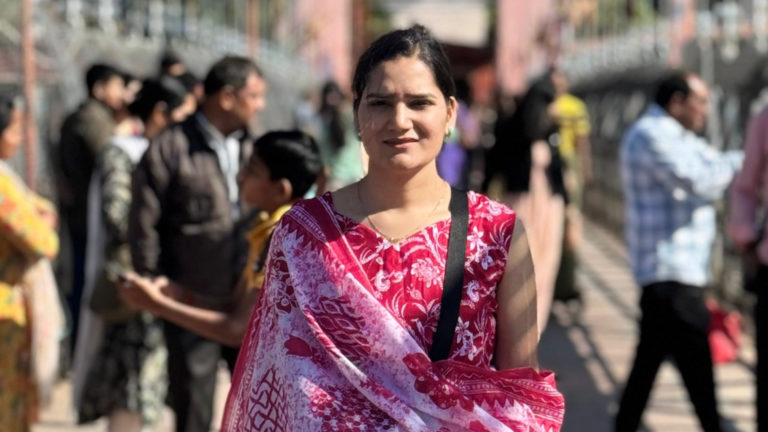
All three describe a crucial tipping point: around ₹30,000 ($360) monthly. At this level, they can finally think beyond survival – saving for the future, investing in new skills, supporting parents, or simply going out with friends without calculating every expense.
Youth show great determination, but they shouldn’t have to go it alone
India’s youth aren’t waiting passively for opportunities. They’re hustling, upskilling, relocating, and balancing dreams with realities.
But reaching economic independence requires more than personal resolve. It requires support, in the form of timely guidance, access to quality opportunities, and a diversity of career options.
Each year, with 12 million youth entering a job market that pays less than ₹15,000 ($180) per month to a majority of its workforce, the urgency is clear. Moving from subsistence to economic inclusion will require thriving and equitable education, work, and social environments that enable young people’s freedom to choose with dignity.
For a generation defining independence on their terms, the question is whether we can evolve quickly enough to meet their determination halfway.
“I used to worry, ‘what will happen, will anything happen at all?’ Now I am determined to be so skilled that wherever I go next,
– Gourav
I won’t have to come back.”